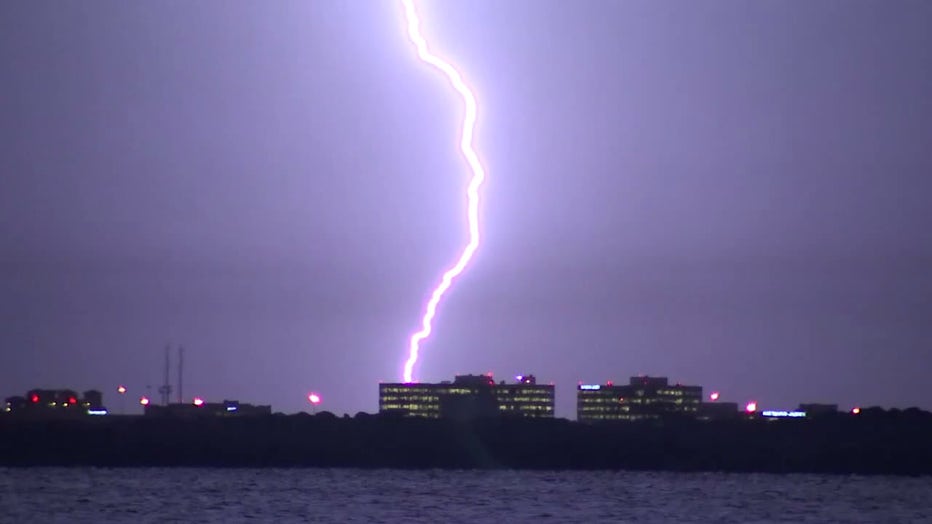Lightning strikes: Bay area doctor explains impacts after a person is struck
ST. PETERSBURG, Fla. - A 16-year-old girl is in serious condition after she was one of four teenagers injured by a lightning strike in St. Petersburg on Thursday, and a pediatric doctor shared how lightning impacts your body.
Lightning is a part of living in Florida, especially in the Tampa Bay area. If you’re ever hit by a strike, doctors said the high voltage impacts your body’s chemistry.
"They feel it as it’s happening, as the electrical charge goes throughout the body. It’s very painful," said Dr. Danielle Mercurio, an emergency physician at John’s Hopkins All Children’s Hospital in St. Petersburg. "I have personally treated people who’ve been electrocuted, but not hit by lightning. But I did speak with my colleagues who treated some people recently and those individuals, thank goodness, survived. They did well. They did not have to stay for observation."
RELATED: 4 teenagers struck by lightning while under tree in downtown St. Pete
On Thursday, mother nature lit up the sky in downtown St. Pete, a strike injuring four teenagers who took cover under a tree. How badly you’re hurt from a lightning strike depends on the electrical energy.
"If it’s a lower amount of voltage then it will potentially leave some burns on the skin and some internal organ damage," said Mercurio.

She detailed what those internal injuries could look like.
"It can break down muscles. It can change the way your heart is working, and it can even cause some disturbance in your kidney function," she said. "If it’s a large amount of voltage, it can immediately stop the heart and pretty much cause immediate cardiac death."
READ: Doctors learning how AI can detect hydrocephalus, other diseases at Tampa conference
What the recovery looks like after a lightning strike also varies.
"Minor injuries can be just a couple of hours. More extensive injury could be a couple of days just to make sure that the organ function returns to normal. And then, if it’s more severe, that person could be in intensive care for weeks to months," said Mercurio.
Doctors don’t want to see anyone hurt and urge people to take that saying "when thunder roars, go indoors" seriously.
Mercurio said first responders immediately check breathing, blood circulation and brain function for lightning strike victims. In some cases, they may have to relearn how to move if they are in the intensive care unit for a long time.
WATCH FOX 13 NEWS:
SIGN UP: Click here to sign up for the FOX 13 daily newsletter


